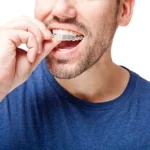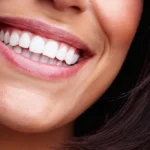Crooked Teeth and Character: Rethinking Beauty Beyond the Perfect Smile
A smile doesn’t have to be flawless to be beautiful. Crooked teeth, gaps, and quirks often add character and make someone’s look more memorable. For years, the “perfect smile” has been tied to straight, uniform teeth, but beauty isn’t one-size-fits-all. The truth is, a smile with personality can feel more authentic and even more attractive.
Rethinking beauty beyond dental perfection opens the door to celebrating individuality instead of chasing uniform standards. It’s time to see crooked teeth not as flaws to hide but as features that tell a story and make a smile uniquely yours.
How do crooked teeth influence the way society views beauty and personality?
For decades, crooked teeth have been labeled as flaws under traditional beauty standards. Straight, uniform teeth are often linked to youth, health, and social success, making many people feel pressure to seek orthodontic correction. This emphasis reflects society’s fixation on symmetry and flawlessness.
But perceptions are shifting. More people are embracing imperfections as part of their individuality. Crooked teeth can add character, setting someone apart in a way that feels authentic.
Instead of detracting from beauty, they can enhance it by making a smile more unique and memorable. Confidence, not symmetry, is becoming the true marker of attractiveness.
Can an imperfect smile be seen as a sign of individuality or confidence?
Absolutely. An imperfect smile can reflect authenticity and strength. In a culture that praises perfection, choosing to embrace quirks, whether gaps, slight overlaps, or unevenness, shows self-acceptance. This attitude communicates confidence, which often feels more attractive than polished perfection.
An imperfect smile also tells a story. It reflects personal history, choices, and the decision to value natural expression over cosmetic alteration. By owning these traits, people highlight individuality rather than blending into a single idea of “ideal beauty.” In this sense, an imperfect smile becomes a visible symbol of character and inner confidence.
What cultural perspectives exist around crooked teeth and attractiveness?
Cultural views on crooked teeth vary widely. In many Western societies, particularly the U.S. and parts of Europe, straight teeth are seen as signs of health, privilege, and success. Orthodontics is often considered a step toward both social and professional acceptance. As a result, crooked teeth are frequently judged against this high standard.
In contrast, other cultures view imperfections differently. In Japan, for example, slightly crooked teeth, called yaeba, are seen as cute and youthful. Some people even undergo procedures to create this look. These cultural differences show that beauty is not universal but shaped by social values and context.
More recently, a global trend toward celebrating authenticity has emerged. As society grows more inclusive of diverse body types, skin tones, and features, crooked teeth are being reframed as unique rather than flawed. This shift reflects a broader move away from rigid beauty ideals and toward individuality and confidence as key measures of attractiveness.
How does dental appearance shape first impressions in social and professional settings?
A smile is often one of the first things people notice, and dental appearance plays a big role in shaping those impressions.
Socially, straight, well-kept teeth are often associated with friendliness and confidence. People with bright, open smiles may be perceived as more approachable, making it easier to build personal connections. On the other hand, those who feel self-conscious about crooked teeth may smile less often, unintentionally appearing reserved.
Professionally, dental appearance can influence credibility and opportunity. A neat, healthy smile suggests attention to detail and self-care, traits valued in many workplaces. Conversely, visible neglect, whether crooked, stained, or unhealthy teeth, may be unfairly linked to poor habits, affecting how others perceive competence.
For the individual, dental appearance impacts self-esteem. People confident in their smile are often more willing to speak up, network, or take on visible roles, while those who feel insecure may hold back. In both personal and professional settings, dental appearance shapes not only how others see someone but also how they see themselves.
Embrace Your Unique Smile
At Paradise Dental Smiles, we believe beauty isn’t about rigid standards—it’s about authenticity. Crooked teeth don’t erase beauty; they highlight individuality and character.
Every smile tells a story, and yours deserves to be celebrated, not hidden. By embracing natural quirks, you can express confidence and shift the way beauty is defined—away from conformity and toward individuality.




